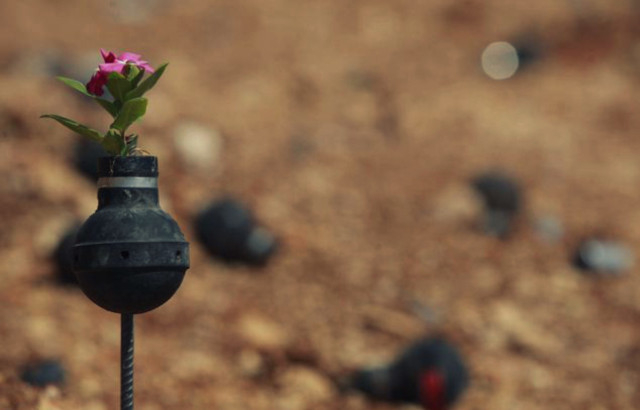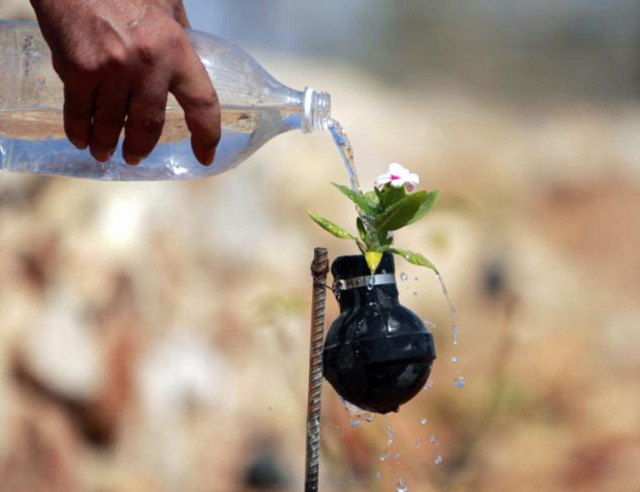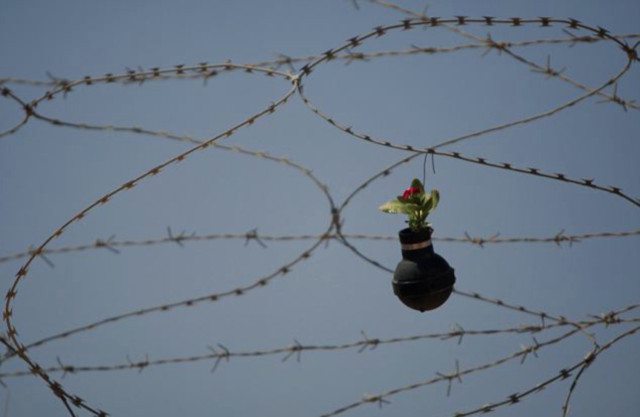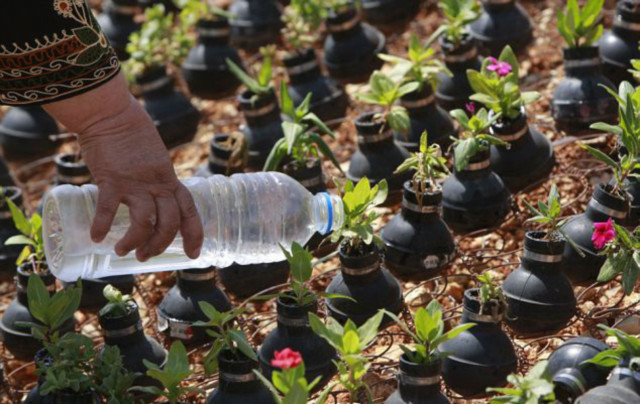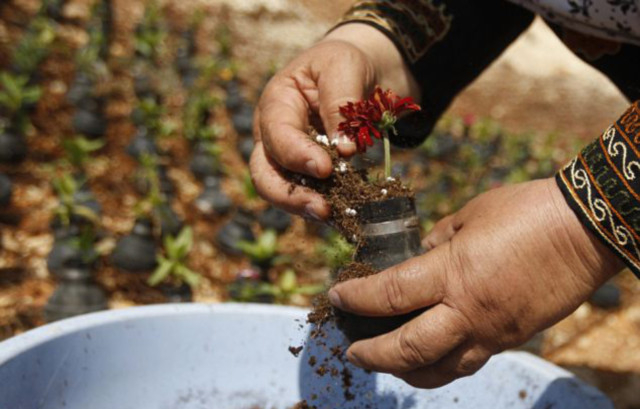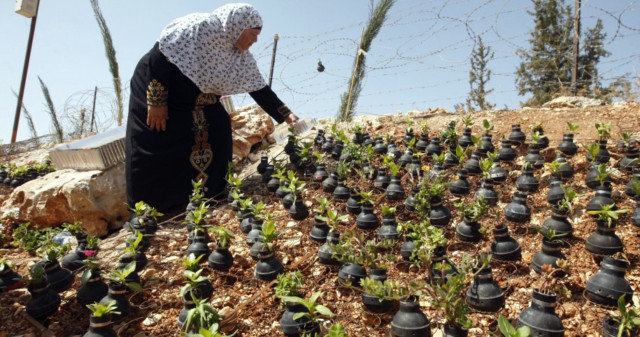
Ramallah: The mother of a Palestinian man killed by the Israeli occupation has transformed the site of his killing into a flower garden, using hundreds of spent Israeli tear gas canisters as pots.
Subhiyah Abu Rahma, mother of Bassem from the village of Bilin near Ramallah in the West Bank, has planted hundreds of flowers and roses in tear gas canisters collected by Palestinians during years of clashes with the Israeli occupation forces.
Bassem Abu Rahma, 30, was killed in April 2009 after he was stuck in the chest by a tear gas grenade during a demonstration against the Israeli separation barrier.
From 2005, his home village had held weekly demonstrations against the barrier, the building of which has had the Israelis expropriate hundreds of acres of land from Palestinian villagers.
Subhiyah chose the site of her son’s killing to plant a garden to send a message of hope for the return of the expropriated land, and for the building of an independent Palestinian state.
The 60 year old turned tools of war into rose and flower pots. Noting its symbolism, she says that Palestinians are capable of making a peaceful utility even out of a tool used for violence.
“I have collected hundreds of tear gas canisters and decided to use them for planting. My martyred son Bassem was a lover of flowers and roses and that was the reason for the plants I chose to grow in the canisters I placed on the site of his murder by Israeli armed forces,” she told Gulf News. Subhiyah still has the canister of the extended-range tear gas grenade the occupation forces fired at Bassem Abu Rahma, and gives the white rose that has grown out of it special care.
Abdullah Abu Rahma, who heads the Media Section at the Popular Palestinian Anti Wall Committee, said Palestinians have collected thousands of Israeli tear gas shells fired by the occupation forces on peaceful demonstrators.
“Those canisters are carefully kept away from the reach of children and those canisters will be used creatively to send the message that Palestinians are turning the means of Israeli aggression into peaceful items,” he told Gulf News.
The committee has won a legal suit against the Israeli government in that the Israeli Higher Court of Justice has approved an adjustment to the route of the barrier giving the villagers of Bilin the chance to recover 485 hectares of land previously seized by the occupation.
Political activists in the village, with the help of international supporters, have set up a 200 square metre garden in the middle of the recovered land. This garden is dedicated to creative ideas in the popular resistance against Israeli colony expansion and the continuation of the construction of the Israeli segregation barrier, which Palestinians often refer to as the Apartheid Wall.
Israel claims to have built the wall as a security measure, whereas Palestinians believe the wall is a politically motivated structure. In 2004 the International Court of Justice ruled that the barrier was illegal.


